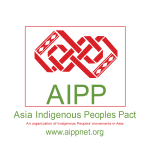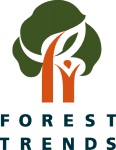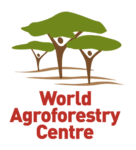September 25, 2020
Marco Lambertini
Director General, WWF International
Dear Mr. Lambertini,
On behalf of the Rights and Resources Initiative coalition, an international network of Indigenous Peoples, Afro-descendants, and local community organizations and their allies, I am writing to inform you of our deep dismay with the recently released Living Planet Report 2020.
While we certainly agree that there is a global biodiversity crisis that demands fundamental and urgent transformations in our global production and consumption systems, we regret that once again the LPR completely ignores local people and their rights and livelihoods in its scenarios and proposed conservation strategies. This oversight is particularly disappointing given the widespread reckoning with systemic racism underway across the globe, and the growing concern with conservation’s own racist roots – whereby Indigenous Peoples and local communities were forcibly removed from newly established protected areas. This practice became the convention promoted by WWF among others around the world, and continues to abuse local people today, as evidenced by the widespread and ongoing violence against environmental defenders in conservation areas. The LPR2020’s blindness to this historic and ongoing injustice, conservation’s own “original sin,” is even more disturbing given WWF’s own implication in a number of human rights abuses for which it has not yet adequately atoned. It also fails to follow the courageous lead of Sierra Club – one of the world’s oldest and most influential conservation organizations – which admitted a month ago the racist foundations of its own organization and conservation approaches.
It is doubly tragic that the report ignores this historic injustice because a robust body of research demonstrates unequivocally that Indigenous Peoples, local communities, and Afro-descendants generally outperform governments in biodiversity conservation, carbon storage, and avoiding deforestation – all at much lower cost and with less corruption. They thus offer in many instances the most promising solution to saving the world’s remaining biodiversity. By ignoring local people or assuming their compliance with the northern notions of conservation, in this case too, “silence is violence,” and there is a risk that the report will do damage to the very people who have been protecting nature all along.
The report does mention Indigenous Peoples and local communities in one instance: on page 108 where it notes that past approaches to value ecosystems “failed to engage a range of perspectives” including those of “Indigenous Peoples and local communities.” However, it then proceeds to repeat those very failures by ignoring them in its analysis, scenarios, and recommendations. This report was a missed opportunity for WWF to demonstrate its awareness of these issues and undertake a serious assessment of how the conservation movement could mobilize its substantial technical, political, and financial capital to respect and support local peoples’ stewardship to address the biodiversity and climate crises.
As a network that includes many millions of Indigenous Peoples and local community members, it is painful to see that once again local people are marginalized and patronized by a powerful, northern-based organization.
We would like to encourage you to:
- Include collective land rights as a strategy in the analysis and scenario building of all future conservation strategies, such as the LPR series – building on positive work such as the Unseen Foresters report and the collaboration with ICCA underway;
- Publicly demand, as a ‘red-line requirement,’ inclusion in the Global Biodiversity Framework of legally enforceable safeguards to both protect and extend Indigenous Peoples,’ local communities,’ and Afro-descendants’ land and governance rights;
- Publicly endorse the “Gold Standard” principles developed by the UN Indigenous Peoples Major Group and RRI for recognizing and respecting Indigenous Peoples’ and local communities’ land and resource rights in landscape restoration, management, conservation, climate action, and development projects and programs;
- Commit to address legacy issues in all conservation areas across the WWF family portfolio, activating its existing commitments to respect the land rights of Indigenous Peoples and local communities, supporting the restitution of land to local peoples as requested by local peoples, as well as implementing Free Prior and Informed Consent in all instances; and
- Publicly commit to making respect for Indigenous, community and Afro-descendant land and governance rights an organizational priority, and to dedicating WWF’s substantial political and financial capital to scaling up the recognition of rights in partnership with Indigenous Peoples and other rights-holder organizations, and in dialogue with governments and the international community.
Our coalition would be pleased to work with you to seize these opportunities and looks forward to your response.
Best regards,
Andy White
Coordinator
Rights and Resources Initiative
SIGNATORIES
RRI Partners:
![]() Coordinator of Indigenous Peoples of the Amazon Basin
Coordinator of Indigenous Peoples of the Amazon Basin
![]() Mesoamerican Alliance of Peoples and Forests
Mesoamerican Alliance of Peoples and Forests
 Indigenous Peoples Alliance of the Archipelago, Indonesia
Indigenous Peoples Alliance of the Archipelago, Indonesia
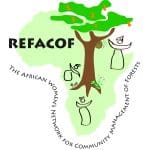 The African Women’s Network for Community Management of Forests
The African Women’s Network for Community Management of Forests
![]() International Family Forestry Alliance
International Family Forestry Alliance
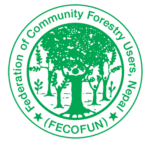 Federation of Community Forestry Users, Nepal
Federation of Community Forestry Users, Nepal
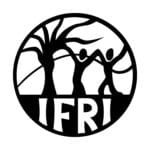 International Forestry Resources and Institutions
International Forestry Resources and Institutions
![]() Instituto Socioambiental, Brazil
Instituto Socioambiental, Brazil
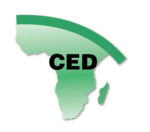 Centre for Environment and Development, Cameroon
Centre for Environment and Development, Cameroon
![]() Regional Program on Development and Environmental Research, El Salvador
Regional Program on Development and Environmental Research, El Salvador
![]() Landesa (Rural Development Institute)
Landesa (Rural Development Institute)
RRI Fellows:
- René Oyono
- Edmund Barrow
- Yemi Katerere
- Humberto Campodonico
- Liz Alden Wily
- Madhu Sarin
- William Sunderlin
- Owen J. Lynch
- Doris Capistrano
- Sally Collins

